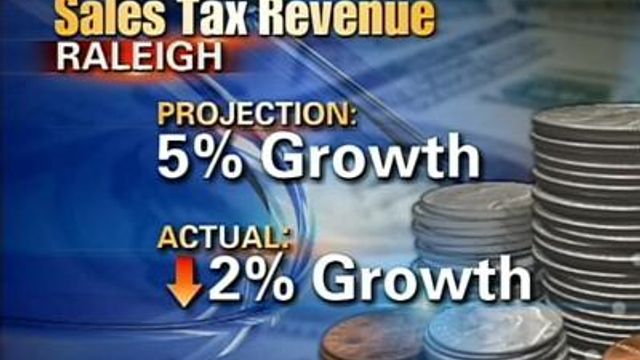Local News
Budget challenges ahead for Wake Co., Raleigh
Both Raleigh and Wake County are seeing budget shortfalls because of the sluggish economy.
Posted — UpdatedRALEIGH, N.C. — Sales tax revenues for Raleigh have failed to reach the projected 5 percent increase forecast for this year, and the troubled economy is to blame.
City Manager Russell Allen said Friday that revenue from sales tax makes up about 20 percent of the city's budget.
The shortfall means many city departments are in a hiring freeze, and some city maintenance projects are on hold.
"We've tried to position ourselves to conservatively expect to receive less than what we budgeted," Allen said.
So far this fiscal year, revenue has grown 1.73 percent, as of September – a significant difference over previous years when revenue estimates are typically more than 7 percent. Last year at this time, even as the economy began to slow, revenues grew 4.84 percent.
Wake County has similar problems with its budget. The projected shortfall for the year is nearly $17 million, mostly from a slowing property tax base.
Assistant County Manager Joe Durham said all departments are being asked to cut from their budget.
"We are looking at a hiring freeze, reducing travel and looking at department-reducing expenditures for the remainder of the year," Durham said.
North Carolina State University economist Mike Walden said that as local governments continue to look for ways to cut back, the situation will likely get worse before it gets better.
"We're in the middle – at best – of this recession. We've got another six months to go," he said. "Most governments will say, 'We really can't raise taxes, we have to cut services.' The question is: 'How do you do that?'"
For both Wake County and Raleigh, layoffs are not an option at this point.
Allen said the hiring freeze has saved about $1 million. The city also budgeted for gas to be higher than what it is now, so they are hoping to save money in that area as well.
"I think it may impact us in next year's budget if we don't see a pick-up in the economy," he said. "Then, we'll have less revenues to work with next year."
• Credits
Copyright 2024 by Capitol Broadcasting Company. All rights reserved. This material may not be published, broadcast, rewritten or redistributed.





